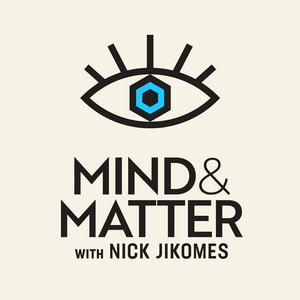Protein Restriction & Liver Hormones: Appetite, Brain, Behavior | Chris Morrison | 251
Send us a textThe effects of protein restriction on metabolism, liver hormones, brain, and behavior.Episode Summary: Dr. Christopher Morrison talks about how animals sense and prioritize nutrients like protein, discussing defense mechanisms for essentials such as oxygen, water, sodium, and energy; the brain's role in detecting protein deprivation via signals like FGF21; trade-offs between growth, reproduction, and longevity under protein restriction; and reconciling high-protein diets for satiety and muscle maintenance with low-protein benefits for metabolic health and lifespan extension.About the guest: Christopher Morrison, PhD is a professor and researcher at the Pennington Biomedical Research Center in Baton Rouge, Louisiana, where he has worked for over 22 years focusing on nutrition, metabolism, and chronic diseases like obesity and diabetes.Discussion Points:The body prioritizes nutrients hierarchically: oxygen and water first, then sodium, energy, and protein, with weaker defenses for carbs or fats.Animals develop specific appetites for deprived nutrients, like salt or protein, often through post-ingestive learning rather than just taste.Protein restriction (e.g., 5% vs. 20% in diets) increases food intake and energy expenditure in mice to maintain protein levels, even at the cost of extra calories.FGF21, a liver hormone, signals protein deprivation to the brain (via NTS region), driving protein-seeking behavior and metabolic changes; it's essential for low-protein responses.Protein restriction extends lifespan in lab animals by suppressing growth signals like IGF-1 and mTOR, but may impair immunity or wound healing in real-world conditions.High protein aids satiety, weight loss, and muscle building, but overconsumption may shorten lifespan; optimal intake depends on age, activity, and goals (e.g., not for pregnant or elderly).No one-size-fits-all for protein: mild restriction may benefit middle-aged sedentary people for health, while athletes need more; balance avoids excesses.Related content:M&M 106: Diet, Macronutrients, Micronutrients, Taste, Whole vs. Processed Food, Obesity & Weight Loss, Comparative Biology of Feeding Behavior | Stephen Simpson & David Raubenheimer*Not medical advice.Support the showAffiliates: Seed Oil Scout: Find restaurants with seed oil-free options, scan food products to see what they’re hiding, with this easy-to-use mobile app. KetoCitra—Ketone body BHB + electrolytes formulated for kidney health. Use code MIND20 for 20% off any subscription (cancel anytime) Lumen device to optimize your metabolism for weight loss or athletic performance. Code MIND for 10% off SiPhox Health—Affordable at-home blood testing. Key health markers, visualized & explained. Code TRIKOMES for a 20% discount. For all the ways you can support my efforts


